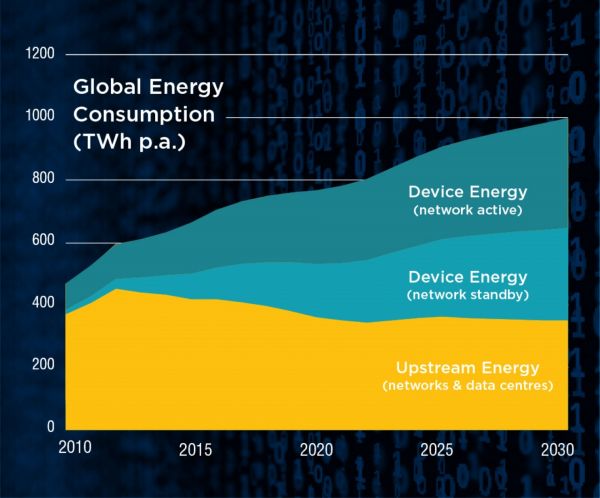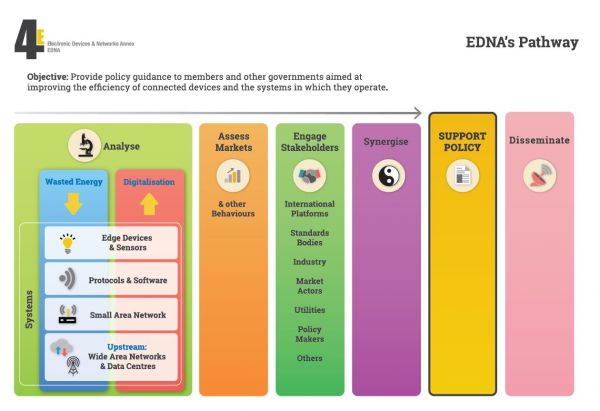IEA 4E EDNA: Electronic Devices and Networks Annex (Working period 2019 - 2021)
Short Description
The aim of EDNA is to support policy makers to develop and introduce regulations for network-connected devices and thus contribute to the energy efficiency of these devices and systems. The ECODESIGN company GmbH (ECO) represents the Austrian Federal Ministry for Climate Protection, Environment, Energy, Mobility, Innovation and Technology (BMK) in this Annex to position Austrian interests in this international research collaboration.
Since the funding of the Annex, various tasks and projects have been established, to explore and analyze opportunities and barriers for the promotion of energy-efficient measures, and to develop policy recommendations made on this basis. During the completed period, the Annex was focused on:
- Task Package C - Policies for Connected Devices: The task aims to explore regulatory efficiency measures for end-use devices. For this purpose, three sub-tasks were conducted: C.1 - Smart ready devices, C.2 - Devices for Demand Flexibility, and C.3 - Digitalization and IoT strategies. A report is available for each sub-task.
- Task Package D - Total Energy Model (TEM): The TEM is a model for quantifying the global energy consumption of network-connected devices and was extended under Austrian leadership. It is accessible on the EDNA homepage as an interactive web tool, and includes different product categories, operating states, and regions for which the energy consumption of network-connected devices can be quantified.
- Network Zero Innovation Challenge (NZIC): "Network Zero (NZ) devices" are devices that do not consume power for their network connection in network standby mode. EDNA aims to have only Network Zero Devices sold by 2030 and is exploring technical opportunities and challenges for NZ device deployment.
- Basket of Products Testing: This ongoing EDNA project collects consumption data for network-connected devices, verifies compliance with limits, and derives energy efficiency potential based on this data and its potential. The results are incorporated into the studies and tasks of EDNA.
- Centre of Excellence: The ongoing project is located within the Connected Devices Alliance (CDA), which consists of a group of more than 350 representatives from politics, research and industry. EDNA studies are managed and published in an online library and made accessible to a wider audience.
Project Images
Terms of use: The pictures listed underneath the header “Project Pictures” originate from the projects in the frame of the programmes City of Tomorrow, Building of Tomorrow and the IEA Research Cooperation. They may be used credited for non-commercial purposes under the Creative Commons License Attribution-NonCommercial (CC BY-NC).
Participants
Australia, Denmark, European Commission, France, Japan, Canada, Korea, Netherlands, Austria, Sweden, Switzerland, United Kingdom, United States of America
Contact Address
Dr. Adriana Díaz Triana
ECODESIGN company engineering & management consultancy GmbH
Schwindgasse 4/2
1040 Wien
E-Mail: diaz@ecodesign-company.com



